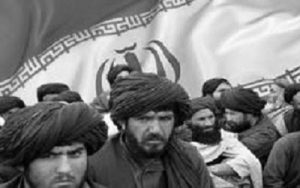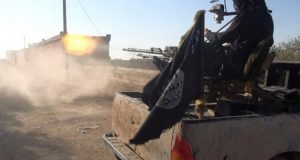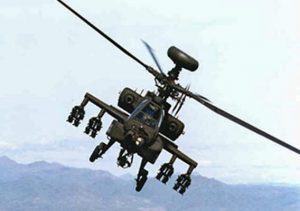The black fur hat looked odd on a Libyan warlord. But fur is de rigueur in wintertime Moscow, which has become an essential stop for Middle Eastern leaders like Khalifa Haftar, who visited twice in 2016. This month his rival, Fayez al-Sarraj, the head of Libya’s UN-backed government in Tripoli, dropped by. Jordan’s King Abdullah, Turkey’s Recep Tayyip Erdogan and Israel’s Binyamin Netanyahu have all stopped at the Kremlin for audiences with Vladimir Putin this year, like reported by economist.com.
The visitors are a sign of Russia’s growing activity in the Middle East. “The policy is wider than just Syria,” says Andrei Kortunov of the Russian International Affairs Council, a think-tank. Russia’s interests in the region include security, arms sales and oil. But most important, the Middle East offers a platform to reinforce Russia’s status as a global power. “Those who have strong positions there will have strong positions in the world,” says Fyodor Lukyanov of the Council on Foreign and Defence Policy, a government advisory body.
Serving as a power-broker in Syria has helped Russia to cultivate relationships. It strives to maintain contacts across the Sunni-Shia and Israeli-Arab divides. While fighting alongside Iran in Syria, Mr Putin helped broker an oil-supply pact with Saudi Arabia. He has also developed a rapport with Egypt’s Abdel Fattah al-Sisi, repaired ties with Turkey’s Recep Tayyip Erdogan after the downing of a Russian jet over Syria, and maintained friendly links with Israel’s Mr Netanyahu, even angling for a more active role in mediating the Israeli-Palestinian conflict. “They go out of their way to talk with everyone in a way that the Americans don’t,” says Mark Katz of George Mason University.
Russia has even made minor inroads with traditional American allies. The Kurdish YPG militia, an American-backed group in Syria, recently said that Russia had set up a base to help train its fighters. Russia attracted Qatari investment last year in Rosneft, a state-owned oil giant, and the United Arab Emirates has pledged to buy a batch of Sukhoi fighter jets. “Like it or not, now you can’t do without Russia in the Middle East,” says a Western diplomat.
Western governments are especially concerned about Libya, where Russia may be aiding Mr Haftar, a secular strongman in the mould Mr Putin prefers. American officials say Russian special forces have been spotted near Sidi Barrani in Egypt, close to the Libyan border; Russian officials have denied it. Russian military contractors have said they are operating in Mr Haftar’s territory. Rosneft has signed a memorandum of co-operation with Libya’s National Oil Corporation.
Russia insists that its engagement with Mr Haftar is about dialogue and ultimately peace. Mr Haftar’s forces have “major potential” to influence events, says Andrei Baklanov, deputy director of the Association of Russian Diplomats. Yet many Western officials remain wary.
Russia’s ability to roam the region stems largely from the waning of American influence. Middle Eastern rulers have proved to be open to diversifying their investments. “This is a region that knows how to play big powers off each other,” says Daniel Kurtzer, a former American ambassador to both Israel and Egypt. Yet Russian aims are limited. Vitaly Naumkin, of the Institute of Oriental Studies at the Russian Academy of Sciences, says the country has “neither the desire nor the resources” to become a new hegemon in the region. As one former Russian ambassador says, “We’re realists, we can compare figures.” Russia’s economy is one-tenth the size of America’s; its defence spending is 11% of America’s in dollar terms. And in contrast to Soviet times, today’s Russia does not promote an alternative system of governance. Instead, it preaches stability. “The Russian position is that preserving what exists is the only way to avoid chaos,” says Mr Lukyanov—even if existing leaders are “cannibals, murderers or autocrats”.
Moscow’s fixation with stability stems partly from the threat terrorism poses to Russia itself. “Russia sees the Middle East as rather close,” says Dmitri Trenin, the director of the Carnegie Moscow Centre, a think-tank. From Sochi, the Russian elite’s favoured getaway, to Aleppo is 850km (530 miles), roughly the distance between Paris and Berlin. Officials say some 9,000 fighters have left Russia and former Soviet republics to join Islamic State.
But it has just as much to do with halting what Russia calls the West’s “policy of regime change”. When autocrats began falling during the Arab spring, Russia’s interest in the region reawakened from a long post-Soviet lull. Russian officials viewed the protests in the Arab world, “colour revolutions” in post-Soviet republics and the Bolotnaya demonstrations in Moscow during 2011-12 as links in the same American-forged chain. For Mr Putin, the decision to intervene in support of Bashar al-Assad’s regime in 2015 was meant in part to “stop the spread of the virus of the Arab spring”, says Mr Trenin, as well as to “return to equal relations with the Americans” after the West’s isolation of Russia over the crisis in Ukraine.
A brutal bombing campaign has helped achieve just that. But as Russia’s engagement has deepened, the challenges have mounted. Despite successes on the battlefield in Syria, “there is no exit in sight”, says Alexander Shumilin of Russia’s Institute for US and Canada Studies. Israel has become increasingly concerned about a long-term Iranian presence in Syria. Negotiations over Syria’s political future continue to falter, and a massive reconstruction bill awaits when the hostilities end. Securing the peace, as America has learned, is often harder than winning the war.












